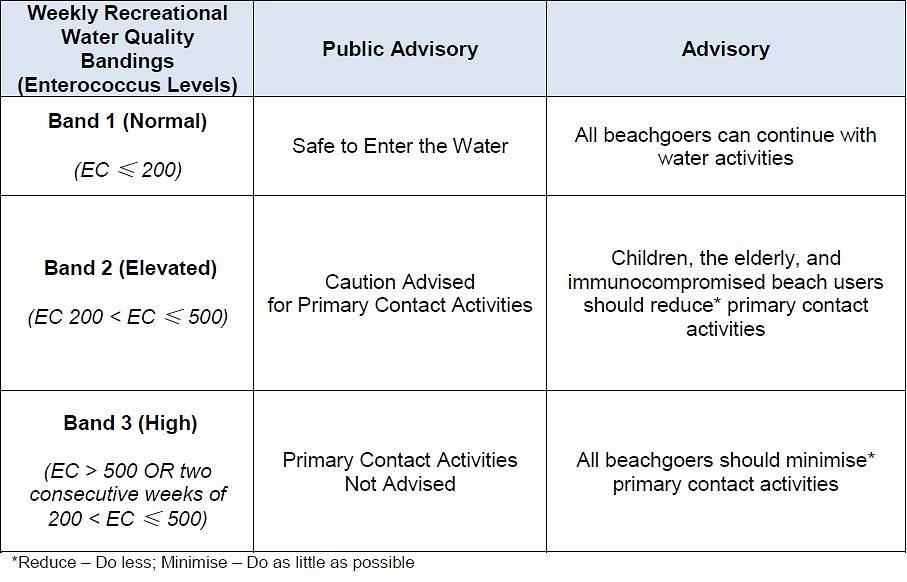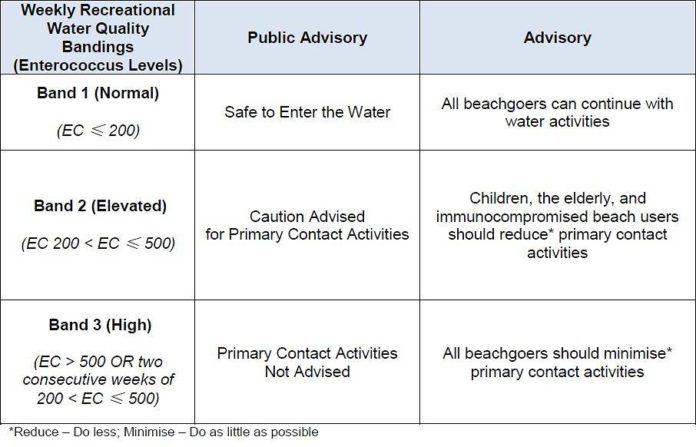SINGAPORE: Beachgoers will now have access to more water quality information at seven popular beaches after the National Environment Agency announced it will provide such data on a weekly basis, on top of its annual findings.
The Beach Short-term Water Quality Information will provide data based on the enterococcus bacteria levels of the water, NEA said in a media release on Wednesday (Oct 7).
The level of the bacteria in the water will be indicated as bandings for easy interpretation.
“The information includes the weekly assessment of water quality of Singapore’s seven popular recreational beaches, along with accompanying advisories and recommended actions to guide beachgoers on precautions they can take to safeguard their health,” NEA said.
The seven beaches are Sentosa Island beaches (Siloso beach, Palawan beach and Tanjong beach), Seletar Island Beach, Sembawang Park Beach, Changi Beach, East Coast Park Beach, Pasir Ris Beach and Punggol Beach.

The National Environment Agency’s bandings and advisories under the Beach Short-term Water Quality Information. (Table: National Environment Agency)
For example, if the water quality is in the Band 2 (Elevated) range, beachgoers should exercise caution. In particular, children, the elderly, and the immunocompromised should reduce primary contact water activities.
READ: Sentosa beachgoers required to make reservations during peak periods from Oct 17
READ: COVID-19: Some beaches ‘extremely crowded’ last weekend, Masagos warns against complacency
Beachgoers are strongly encouraged to follow the advisories to safeguard their health, NEA advised.
However, the public need not be unduly concerned if certain stretches of the beach go into Band 2 or above for a particular week, NEA said, adding that enterococcus levels are transient in nature and the beach water is continuously flushed and mixed by currents.
“Notwithstanding this, when the water quality deteriorates to Band 3, NEA will monitor the water quality closely, conduct investigations to identify possible pollution sources, and carry out any remedial or mitigation measures as required,” it said.
NEA has worked with the National Parks Board and Sentosa Development Corporation to put up notices along the recreational beaches to point beachgoers to the water quality bandings on its website, the agency said.





